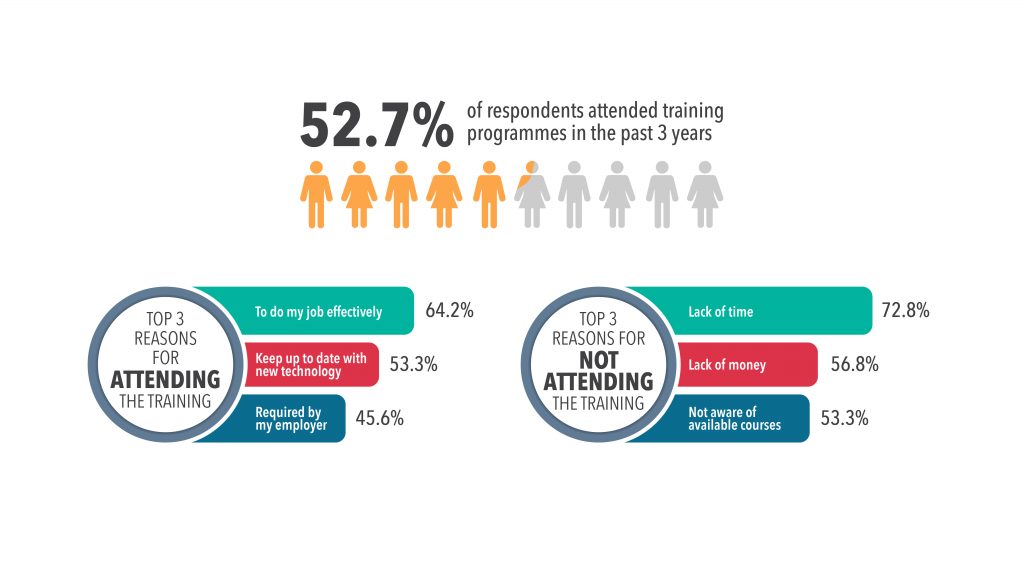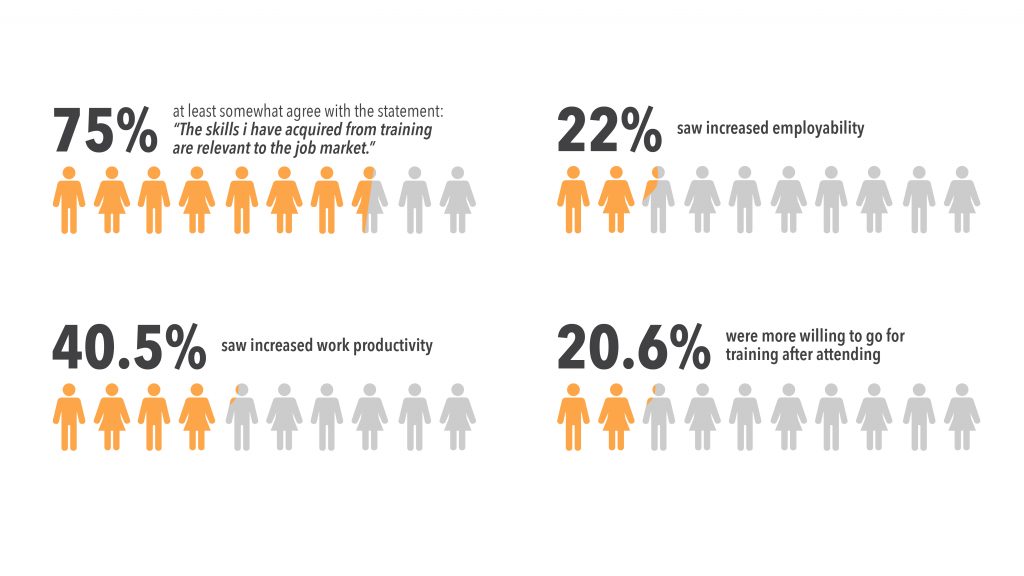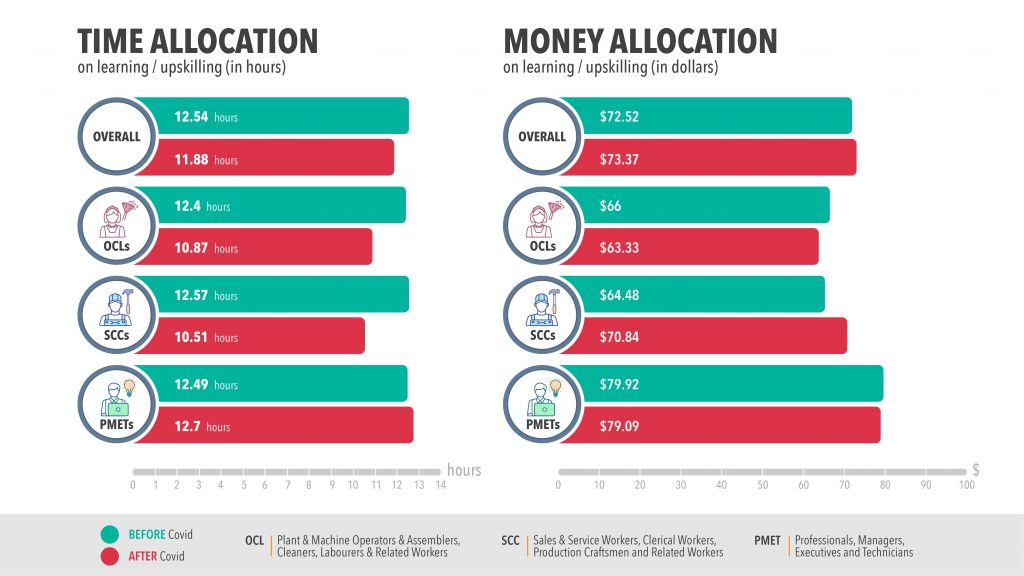This is a contribution piece by Labour MP and NTUC Assistant Secretary-General Patrick Tay. Any extracts should be attributed to the author. 15 Dec 2020.
The COVID-19 pandemic has caused a tsunami of changes to sweep across the world. Not only our economy, but our businesses have been hit, and our workers have had their livelihoods impacted. Amidst these grim conditions, there has been much discussion in recent months on how our local workers may – and must – persevere and preserve upward mobility despite the downturn.
To better look into important workers’ issues, NTUC held its third edition of the Labour Research Conference last month, along the theme of “Workers’ Matters: Finding ways to brave the roads ahead”.
Upward Mobility: Determined by Birth?
At the Labour Research Conference, an insightful panel discussion shed light on the importance of mapping out one’s existing and future skills required to stay relevant and then pursuing training to bridge the skills gap – an indispensable step towards achieving mobility. In particular, a research study “Upward mobility of workers” which NTUC Strategy conducted in partnership with Singapore Management University found that parents’ educational backgrounds do not impede workers from attaining qualifications that are diploma and beyond. Career-wise, our workers have attained PME status regardless of their parents’ status. Thus, it appears that Singaporean workers, with their own resourcefulness and the availability of support, have found a way to raise their own socio-economic positions. This is indeed cause for celebration.
But that alone will not suffice as we remain vulnerable to emerging issues that may impede upward mobility. Hence it is paramount that workers turn to training to continually maintain or improve their current state of upward mobility. Especially in such uncertain times, it is imperative that we forge ahead with certainty, recognising that the existing skills that we own – a factor of employability that is within our control – can be sculpted to meet the shifting challenges ahead. How?
Firstly, we should map out our current and future skills by identifying our existing skill sets and by being aware of one’s career aspirations. Next, we must bridge the skills gap by pursuing relevant training to protect and increase one’s employability. Only then, will we able to navigate the murky waters of employment towards realising one’s career aspirations and meet the ever-evolving demands of a post-pandemic world.

Training Key to Preserving and Improving Upward Mobility
I am heartened to share that many Singaporeans are on the right track. Research findings from our study have shown that 52.7 per cent of respondents have recently attended training, with some of the top reasons being to help them work more effectively and to keep up to date with new technology. Furthermore, respondents who have attended training experienced tangible outcomes after training such as increased work productivity and increased employability. For example, the Union of Telecoms Employees of Singapore (UTES) has been working very closely with Singtel to help our workers re-skill and take on new or enhanced roles. As a result of these efforts, their mid-career IT systems consultants have managed to re-skill themselves as IT security consultants supporting customers in cybersecurity solutions.

In fact, when it comes to training, findings hint at a potential demand for higher quality training services among workers in Singapore. In a question where we asked respondents how they would allocate their time and money on various activities (including training) both pre and post-COVID-19, results showed that given additional time and monetary resources post-COVID-19, workers were willing to spend more money on training yet not more time, signalling a preference for high-quality bite-sized training that gives them value for money. In general, time allocated for upskilling decreased by 5.26 per cent while amount allocated to upskilling increased by 1.17 Per cent.
On the other hand, for the other 47.3 per cent who are not pursuing training, top reasons cited include the lack of time, lack of money and lack of awareness about training. To overcome these barriers, our training arm, NTUC LearningHub, curated a number of free online training courses which aim to equip workers with adaptive, technological and technical skills to help them become ‘Worker 4.0’ to meet the demands of Industry 4.0. These free online courses recognise the modern workforce’s need for accessibility and convenience and provide the opportunity for our workers to learn anytime and anywhere.
To give our union members a leg up in their training efforts, they can also tap on the Union Training Assistance Programme (UTAP) which allows for 50 per cent of unfunded course fee support of up to S$250 each year (and double of that for those who are age 40 and above), to defray out-of-pocket expenses for course fees.

Stronger Together
Apart from training, our research also found that many workers are concerned about their jobs, with 57 per cent of the respondents indicating that COVID-19 will have a negative impact on their future job opportunities.

To enhance the employability of our workers, NTUC and our affiliated-unions have – and will continue to – partner employers and the government, to preskill, reskill and upskill our workers in tandem with industry and company transformation. For example, the Singapore Industrial & Services Employees’ Union (SISEU), provided immediate training and other employment-related support to workers in the aerospace sector who were badly hit by the pandemic. SISEU also helped to place affected workers into secondary employment within the same industry or across different industries, by working together with the affected workers and the company to identify the transferable skills and conduct skills matching to place the workers from the affected company to the hiring company. SISEU also collaborated with NTUC’s e2i (Employment and Employability Institute) and NTUC LearningHub to increase our workers’ accessibility to training through the designing of training plans and the curation of relevant courses for affected workers. Ultimately, these efforts have helped more than 300 workers to be placed into secondary employment, thereby helping to secure their livelihoods.
In addition, SISEU is also working with companies to conduct Operation and Technology Roadmap (OTR) to map out their digital transformation roadmap within the next five years. The roadmap serves to identify skilling opportunities for the growth of existing workers. This then translates into a win-win situation: where workers are able to learn new skills and even take on new job roles, while on the other hand, companies can benefit from a more productive and skilled workforce.
Now, more than ever, training is necessary for our workers to preserve and improve one’s employability and current state of upward mobility. This pandemic has taught us the importance of staying ready and resilient. I strongly encourage workers to be part of the Labour Movement; so that we can represent your collective interests and articulate your needs in response to the ever-shifting demands of the current workforce. NTUC will also continue to partner our tripartite partners to help our workers and businesses weather the COVID-19 storm and emerge even stronger. Yes, while the road ahead may be uncertain, but you are never alone. We’ve got your back.
If you’re a worker and would like to explore training opportunities, do check out NTUC’s e2i website or NTUC LearningHub’s website. If you’re a company interested to set up a Company Training Committee or conduct Operation and Technology Roadmapping, do approach NTUC Training and Transformation here.

